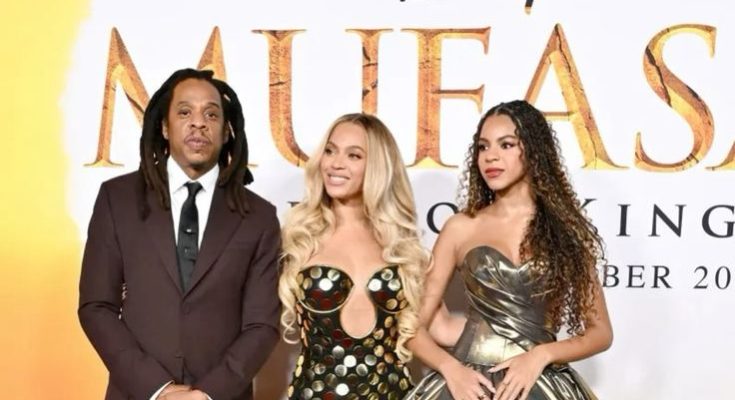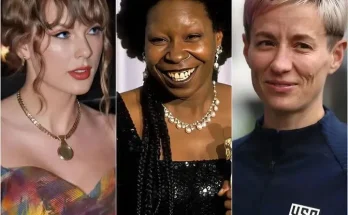Beyoncé and her husband Jay-Z welcomed their oldest daughter Blue Ivy in 2012, and twins Rumi and Sir Carter in 2017 and it seems they could become stars in their own right
Blue Ivy’s name can finally be trademarked.



Beyoncé will now be able to trademark her oldest daughter’s name after winning a battle over a Wisconsin clothing store, according to court documents. The first time the R&B superstar attempted to trademark her daughter’s distinctive name was after she was born in 2012.
At the time, the Cowboy Carter singer’s BGK Trademark Holdings LLC applied at the U.S. Patent and Trademark Office, but she ended up battling it out in court with wedding planner, Veronica Morales. Veronica fought Beyonce’s filing because her business was named Blue Ivy Events and had been since September 2009, the paperwork showed.
- Beyonce uses NFL halftime show to ‘distract’ herself from Jay-Z’s sexual assault allegations
- Beyoncé could be fined for using banned hand gesture during NFL Christmas Day performance
Their ongoing dispute led to a tribunal in 2020 and the USPTO rejected Veronica’s complaints, ruling the two weren’t alike enough. While Beyoncé triumphed, her attorneys didn’t continue with the application and it was eventually abandoned.

Blue was born in 2012 (
Variety via Getty Images)
The Lemonade songstress applied in November 2023 for a second time, but once again she faced struggles after an examiner issued a tentative ruling because a Wisconsin clothing store had a Blue Ivy logo. Per The U.S. Sun, documents show that Blue Ivy Carter was too “confusingly similar” to the boutique, which has used the logo since 2011.
After pushing back, Beyoncé has now been given the okay to proceed with the process as the boutique itself never opposed the application. An examining attorney has since amended it, and approval has been given for publication in The Trademark Official Gazette on December 31.
“Within 30 days of the publication date, any party who believes it will be damaged by the registration of the mark may file a notice of opposition (or extension of time) with the Trademark Trial and Appeal Board,” the documents said.


